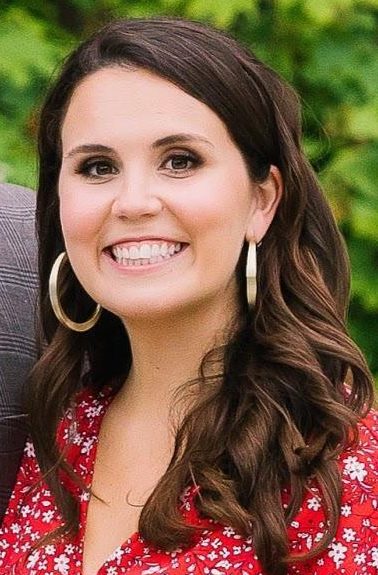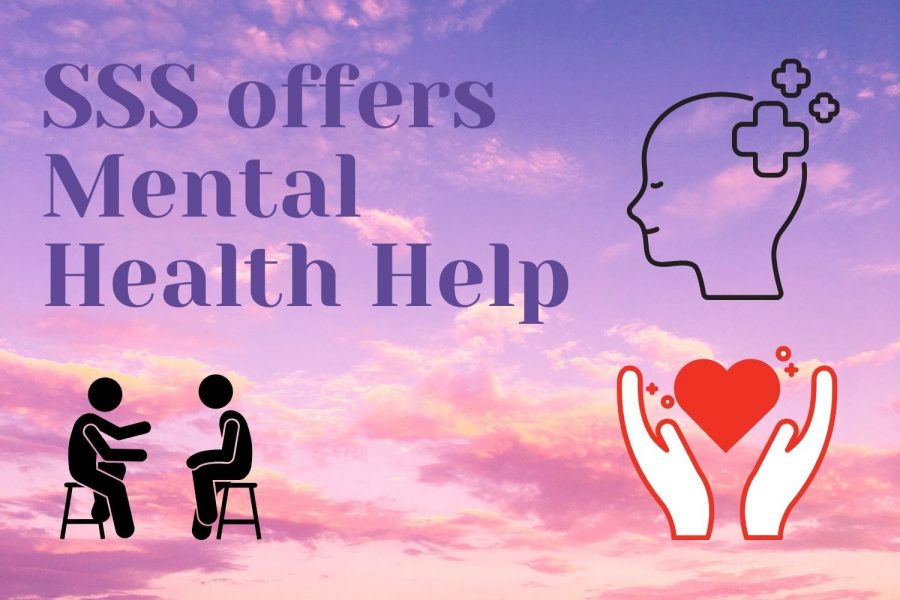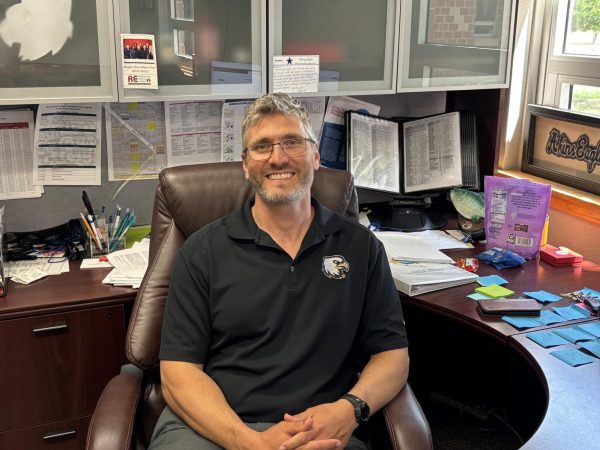Student Support Services offers mental health help
The Eagle’s Eye sent questions to Meg Scamardo, Akins Student Support Services counselor, about the kinds of mental health problems students are dealing with during the pandemic and resources that are available to them.
Eagle’s Eye: Do you think more students are experiencing symptoms of depression this year? If so, please explain.
Meg Scamardo: The short answer is yes because we have experienced an unprecedented amount of grief since last year. In the Spring of 2020, the Harvard Business Review published an article that describing our collective struggles as a society that we were experiencing during quarantine. It was entitled, “The Discomfort You’re Feeling is Grief,” and I think it really articulated what many people (including students) were feeling at that time and still are feeling.

Many students, teachers, and staff have endured significant loss during the pandemic. Death of loved ones, neighbors, co-workers. Loss of hugs, handshakes, high fives, and physical touch. Loss of normalcy and routine. Loss of employment, stable housing, and other economic impacts. All this loss also coincided this summer with the murders of George Floyd, Breonna Taylor, Ahmaud Arbery, and unfortunately too many other Black men and women.
We also cannot forget about the tumultuous election year we just went through as well! You then realize that our Akins students are now having to deal with all these events (and probably more,) and adjust to a completely new school environment in order to keep themselves, their families, teachers, staff, and our entire community safe. It’s exhausting and depressing just to type! Depression can also result from spending more time indoors and inside our homes, loss of routine, and other things we have had to add more to our lifestyles in order to attempt to control the pandemic.
EE: What makes it difficult to assess students’ mental state when they are doing virtual classes?
MS: It is possible to connect and build relationships with students over zoom and the phone, but it definitely is a lot more challenging. Also, because our students are so busy with adjusting to remote learning, it can be challenging to have students respond to phone calls or emails.
EE: What kinds of resources are available to students who are experiencing depression or other mental health issues?
MS: Our Student Support Services office offers free, voluntary, and confidential services to students experiencing depression and mental health issues. We offer 1 on 1 counseling on an as-needed or weekly basis. Students are welcome to participate in 1 on 1 counseling to receive individual support for whatever they need. We also have groups that all meet during FIT.
We also are offering an Open Process group on Tuesday during FIT for students who would like a safe & supportive place to process with others whatever they need to process. We also have adult and peer mentor programs as well as community resources and much, much more.
Students can email or call us, or they can visit our BLEND Calendar to view the group schedule as well as find out info about how to join on Zoom.
EE: What are some easy and good strategies for dealing with mental health while students are isolated at home?
MS: Move as much as possible!! So many doctors, therapists, and other professionals have demonstrated that increasing our movement is one of the best things we can do right now while we are at home. Go for a walk, hike, practice yoga, ride a bike, run, play basketball or other sports, skate, turn on some music and dance like no one is watching, YouTube FREE fitness and exercises classes that focus on movement (please make sure to consult your parent/guardians and medical professionals before engaging in physical activity). Whatever you need to do, just move!
Turn off your screens (phones, TVs, and computers) whenever possible and not doing remote learning. Practice Mindfulness, the YouTube channel, and app called Stop, Breathe, & Think is one of my favorite go-to’s. Talk to your family, friends, and loved ones. BE KIND TO YOURSELF. Do your best to tune out negative and shameful thoughts that are making you feel insecure, insufficient, and not enough. Reach out to professionals when you need writing/journaling, listening to music, drawing, and doing something creative to strategies for mental health struggles.
Your donation will support the student journalists of Akins High School. Your contribution will allow us to purchase equipment and cover our annual website hosting costs.

Grade: 11
Academy: New Tech
Number of Years on Staff: 1
Title: Staff Writer
Why do you enjoy being on staff? I like investigating deep in a story to learn things that I didn't know about.
What do you do for fun? I like playing video games and watching TV.
What new hobbies, activities do since quarantining because of COVID? I haven't learned anything new during the quarantine.
Hopes & Dreams? I hope in the future I can have a great job that pays well.












